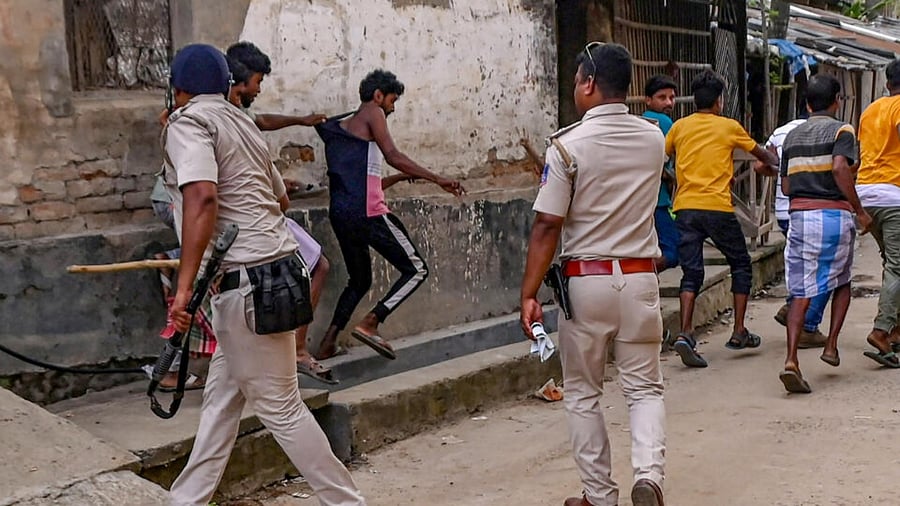
July 8 adds another chapter to West Bengal’s infamous political history. With deaths, assaults, and instances of ballot- boxes and papers being looted, the inherent violent nature of regional politics was reaffirmed, yet again.
At least 12 deaths, with higher claims pegging the same between 15-19, cutting across political lines have been attributed to the day of rural polls. A proper official assessment is awaited.
The day’s development, being seen as a political-drill for the upcoming Lok Sabha elections, had the parties assessing their strengths on ground-zero, while the results – a dipstick to gauge rural voters’ mood – could offer understanding of people’s political preferences, as of now.
“Corruption” under the current state regime, and “deprivation” due to freeze of centre’s funds, figured in the pre-poll rhetoric, for the two leading political opponents. Over 66 per cent votes were cast by 5 pm. In the fray, are the ruling Trinamool, the challenger BJP, and an “alternative” in the form of the Left, and the Congress.
Throughout the day, the political parties raised allegations about their workers being assaulted. Candidates and agents were beaten, or obstructed at the booths. The regional television projected visuals of the freeplay, the ballot boxes and papers were subjected to in some pockets.
The ruling Trinamool Congress, in an evening press conference, conferred Opposition the onus of “scripting” the day’s fallout. Three senior party leaders jointly addressed, and pitched “0.00097%” as the fraction of booths where the incidents of violence took place. Shashi Panja, minister in the state government said that major incidents involved 60-odd booths, of the 61,539.
Panja added that the process was smooth in 13-14 districts (of the 22 where polls took place). The majority of deaths during panchayat elections are of the Trinamool workers, the party leaders said, adding that if the Trinamool was instigating the violence, why would it target its own workers.
In a letter to Union home minister Amit Shah, BJP-Bengal president Sukanta Majumdar demanded “intervention of (the) central government” for restoring democracy in West Bengal. Majumdar wrote that “terrible violence” was witnessed in all the districts, but the most occurred in South 24 Parganas, North 24 Parganas, Murshidabad, Paschim Medinipur, Purba Medinipur, Cooch Behar, Jalpaiguri, Bankura, Hooghly, Uttar Dinajpur, Dakshin Dinajpur, Malda, Purba Bardhaman.
He claimed that “15 political deaths occurred just on the day of (the) poll”. BJP state sources added that the Union ministry of home affairs has asked for a report from Majumdar, on today’s poll violence.
BJP leader Suvendu Adhikari, in the evening, visited the state election commission, chained and locked the main gate as a gesture of protest. The BJP is likely to move court on Tuesday.
Governor CV Ananda Bose, continued with his field visits, on the day of the polls. Bose had earlier blamed the state election commissioner for failing in his duty. The Opposition has also continued to question the role of the commission in holding elections. Rajiva Sinha, state election commissioner, told reporters it would be possible to comment only after the complete reports concerning the elections arrive.
Despite the polls taking place in the presence of central forces, the day witnessed skirmishes, and miscreants were out to disturb the voters. In a tweet, BSF-Eastern Command mentioned that an “unruly mob tried to loot the ballot boxes by hurling crude bombs at polling booths 106 & 107 at Shankarpur, Khargram”.
The BSF troops fired two rounds in the air to disperse the mob and ensured the safety of polling staff and ballot boxes, the force added. In a tweet, in the afternoon, the force stated that 59,000 troops of central armed police forces and state armed police have been deployed (till that time) for the elections.
